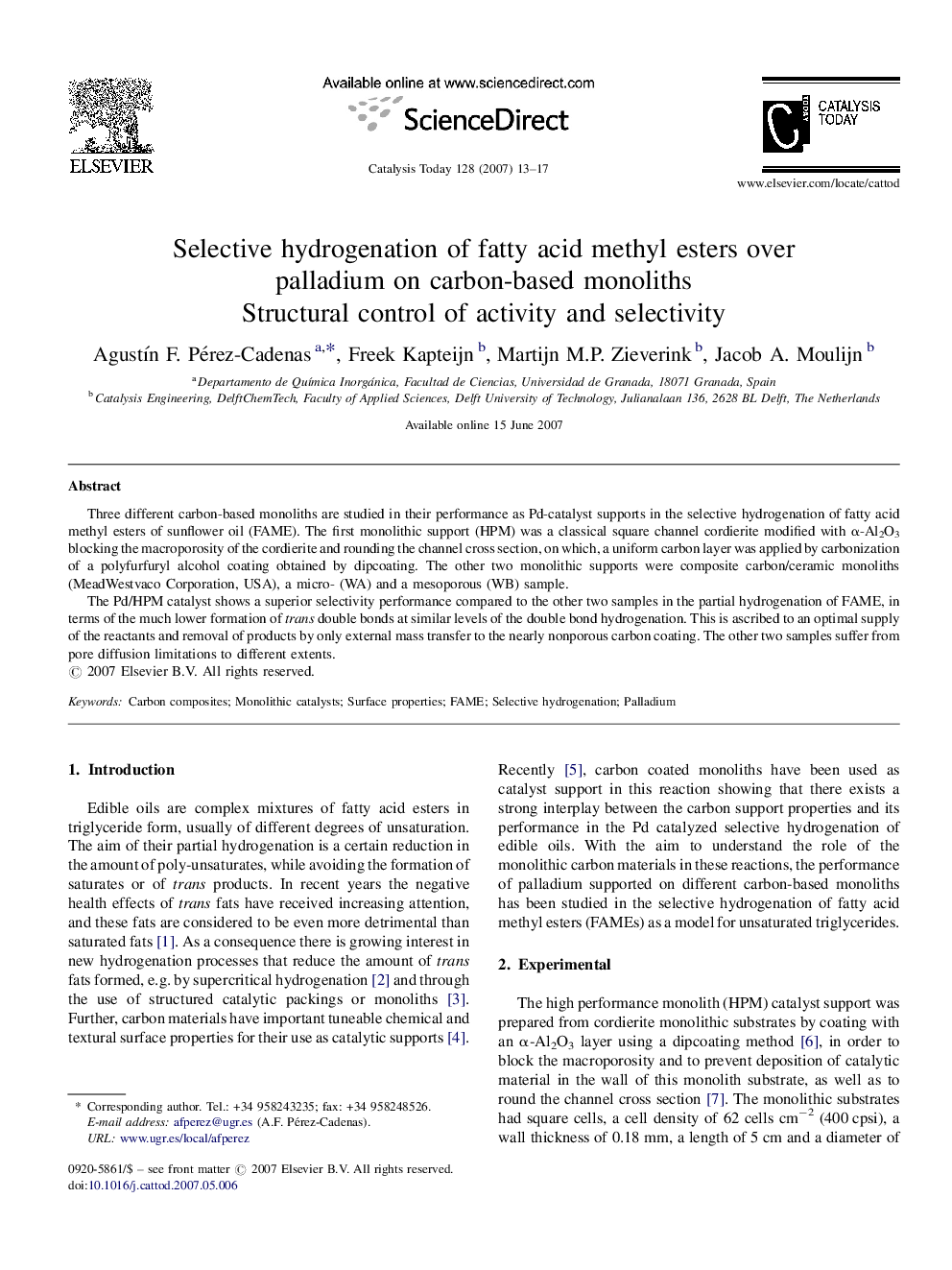| Article ID | Journal | Published Year | Pages | File Type |
|---|---|---|---|---|
| 58374 | Catalysis Today | 2007 | 5 Pages |
Three different carbon-based monoliths are studied in their performance as Pd-catalyst supports in the selective hydrogenation of fatty acid methyl esters of sunflower oil (FAME). The first monolithic support (HPM) was a classical square channel cordierite modified with α-Al2O3 blocking the macroporosity of the cordierite and rounding the channel cross section, on which, a uniform carbon layer was applied by carbonization of a polyfurfuryl alcohol coating obtained by dipcoating. The other two monolithic supports were composite carbon/ceramic monoliths (MeadWestvaco Corporation, USA), a micro- (WA) and a mesoporous (WB) sample.The Pd/HPM catalyst shows a superior selectivity performance compared to the other two samples in the partial hydrogenation of FAME, in terms of the much lower formation of trans double bonds at similar levels of the double bond hydrogenation. This is ascribed to an optimal supply of the reactants and removal of products by only external mass transfer to the nearly nonporous carbon coating. The other two samples suffer from pore diffusion limitations to different extents.
